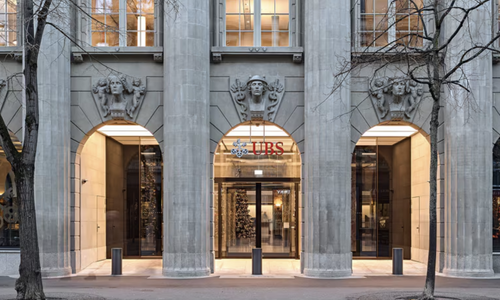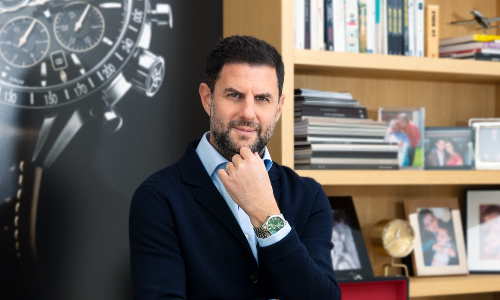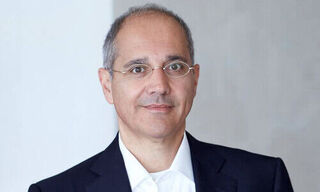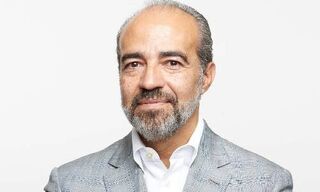Drei Kundenberater werden verdächtigt, ehemalige UBS-Kunden angelockt und Steuerpflichtigen geholfen zu haben, gut 1,2 Milliarden Dollar zu hinterziehen.
Wie der zuständige Bundes-Staatsanwalt in Manhattan am Dienstag bekanntgab, hätten die drei angeklagten Banker mehreren US-Steuerzahlern geholfen, sowohl ihre Schweizer Konti als auch deren Erträge vor der Steuerbehörde IRS zu verstecken.
Vor allem hätten die drei Kundenberater in den Jahren 2008 und 2009 Dutzenden ehemaligen UBS-Kunden geholfen, undeklarierte Konti zu eröffnen.
Auch Kunden einer anderen grossen Schweizer Bank seien von den Angeklagten übernommen worden; diese Bank wird namentlich nicht genannt, es dürfte sich aber um die Credit Suisse handeln, die sich in jener Zeit von US-Kunden trennte und die selber im Visier der US-Behörden steht.
Auch höhere Wegelin-Leute seien dabei gewesen
Die drei Wegelin-Berater im Alter zwischen 41 und 51 Jahren hätten – so die Darstellung der US-Behörden weiter – jeweils darauf verwiesen, dass ihre Bank eine grosse Tradition im Umgang mit dem Bankgeheimnis habe und weniger verletzlich sei, da sie in den Vereinigten Staaten keine Niederlassung betreibe.
Auch Mitglieder des oberen Kaders – «senior management» – hätten an Veranstaltungen teilgenommen, bei denen US-Kunden angeworben wurden.
Am Ende hätten die Banker für ihre neuen Kunden Scheinfirmen und Stiftungen in Ländern wie Liechtenstein oder Panama aufgesetzt und betrieben.
Teil einer konzertierten Aktion
Die Bank Wegelin wird in der Mitteilung gar nicht namentlich genannt, sie erscheint lediglich als «Bank A». Dass es sich um das St. Galler Haus handelt, bestätigte ein Justizvertreter gegenüber «Bloomberg»; es lässt sich auch aus den Handelsregistereinträgen der namentlich genannten Kundenberater Michael Berlinka, Urs Frei und Roger Keller eruieren.
Der Fall steht bekanntlich im Rahmen einer konzertierten US-Aktion gegen ein knappes Dutzend Schweizer Banken, die nach dem UBS-Skandal flüchtige Kunden übernommen haben sollen. Nach fast identischem Muster wurden bereits zwei Vertreter von Julius Bär, mehrere ehemalige UBS- und CS-Leute sowie einzelne Schweizer Vermögensverwalter angeklagt.
• Hier die Mitteilung, die Department of Justice und IRS gestern veröffentlichten:
Preet Bharara, the United States Attorney for the Southern District of New York, and Charles R. Pine, the Special Agent-in-Charge of the New York Field Office of the Internal Revenue Service, Criminal Investigation Division («IRS-CID»), announced the indictment today of three Swiss bankers, Michael Berlinka, Urs Frei, and Roger Keller, for conspiring with U.S. taxpayers and others to hide more than 1,2 billion in assets from the IRS.
These assets were hidden in undeclared accounts of U.S. taxpayers at the Swiss bank («Swiss Bank A») where Berlinka, Frei, and Keller worked as client advisers. ... According to the Indictment filed today in Manhattan federal court, Berlinka, Frei, and Keller worked as client advisers at the Zurich branch of Swiss Bank A, which provides private banking, asset management, and other services to clients around the world.
Berlinka, Frei, and Keller began working at the bank in 2008, 2006, and 2007 respectively.
During their time at Swiss Bank A, Berlinka, Frei, and Keller allegedly conspired with various U.S. taxpayers and others to hide from the IRS both the existence of certain Swiss bank accounts, as well as the income they generated. In particular, Berlinka, Frei, and Keller opened and serviced dozens of undeclared accounts for U.S. taxpayers in 2008 and 2009, in an effort to capture business lost by UBS AG («UBS») and another large international Swiss bank («Swiss Bank B») in the wake of widespread news reports that the IRS was investigating UBS for helping U.S. taxpayers evade taxes and hide assets in Swiss bank accounts.
After the reports, both UBS and Swiss Bank B stopped servicing undeclared accounts for U.S. taxpayers.
To capitalize on the business lost by UBS and Swiss Bank B and to otherwise increase the assets under management at Swiss Bank A, and fees earned from those assets, Berlinka, Frei, Keller, and other client advisers allegedly told various U.S. taxpayer-clients that their undeclared accounts at Swiss Bank A would not be disclosed to the United States authorities because Swiss Bank A had a long tradition of bank secrecy. The defendants and other client advisers at Swiss Bank A also told their U.S. taxpayer-clients that the bank was less vulnerable to United States law enforcement pressure because, unlike UBS, the bank did not have offices outside Switzerland.
Members of Swiss Bank A's senior management participated in some of these sales pitches to U.S. taxpayer-clients who were fleeing UBS. Additionally, to further the conspiracy, Berlinka, Frei, and Keller, and/or other client advisers allegedly took steps that included the following:
-
- They opened and serviced undeclared accounts for U.S. taxpayer-clients in the names of sham corporations and foundations formed under the laws of Liechtenstein, Panama, Hong Kong, and other jurisdictions for the purpose of concealing the identities of the U.S. taxpayer-clients from the IRS;
- They received and retained at Swiss Bank A documents that falsely declared that the sham entities were the beneficial owners of certain accounts, when in fact, the accounts were owned by U.S. taxpayers;
- They permitted certain U.S. taxpayer-clients to open and maintain undeclared accounts at Swiss Bank A using code names and numbers to minimize references to the actual names of the U.S. taxpayers on Swiss bank documents;
- They ensured that account statements and other mail for U.S. taxpayer-clients were not mailed to them in the United States; and
- They sometimes communicated with U.S. taxpayer-clients using their personal email accounts to reduce the risk of detection by law enforcement.
...
By 2010, the collective maximum value of the assets in undeclared accounts beneficially owned by U.S. taxpayer-clients of Berlinka, Frei, and Keller, and other client advisers at Swiss Bank A was more than 1,2 billion Dollar, with many accounts holding in excess of 10,000 Dollar in any one year.
Berlinka, Frei, and Keller, 41, 51, and 47, respectively, reside in Switzerland. The defendants each face a maximum term of five years in prison, a maximum term of three years of supervised release, and a fine of the greatest of $250,000, or twice the gross pecuniary gain derived from the offense or twice the gross pecuniary loss to the victims. ...»
-
Ja, es gab keine andere, wirtschaftlich sinnvolle Alternative.26.51%
-
Nein, man hätte die Credit Suisse abwickeln sollen.18.53%
-
Nein, der Bund hätte die Credit Suisse übernehmen sollen.28.25%
-
Man hätte auch ausländische Banken als Käufer zulassen sollen.9.11%
-
Man hätte eine Lösung mit Schweizer Investoren suchen sollen.17.6%









































